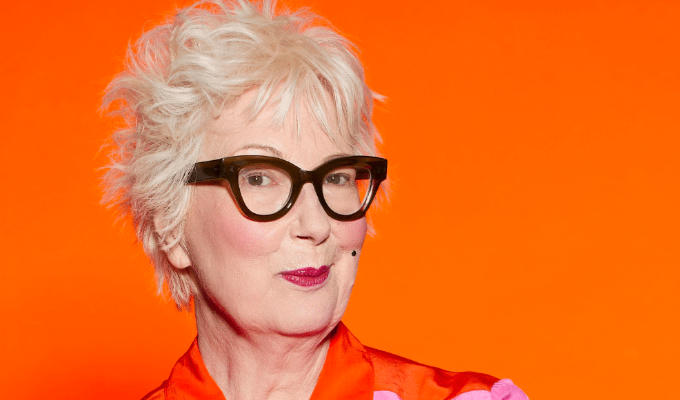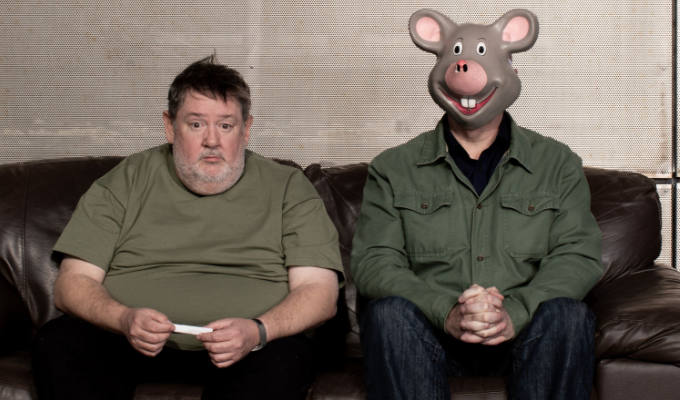The Club That Changed Comedy, by William Cook
Without The Comedy Store, the most famous stand-up venue in the country, would we have the live circuit we have today?The answer, of course, is yes. Had Peter Rosengard and Don Ward not stolen the idea wholesale from the States, someone else surely would.
But its name is still synonymous with stand-up not just because it was the first - but also because, unlike other, arguably more influential venues, it endures today.
As is well documented, the Store first opened its doors above a Soho strip club on May 19, 1979 - the same year Thatcher swept to power.
Since then it has undergone various transitions - both physically and spiritually - from its seedy beginnings where hostile, rowdy punters would gong off a seemingly limitless supply of hopeless hopefuls, to its present day slick, corporate operations off Piccadilly Circus and in Manchester.
And, of course, a comedy club doesn't exist for 23 years without boasting a string of now-famous names among its alumni.
The list of people who've played here - as the cliche goes - is a real Who's Who of comedy. And the first chapter of William Cook's new history is really little more than a triumphant listing of this hall of fame.
Thankfully, the rest of this biography - if that's the correct word for a book about a club - is considerably more entertaining.
Stand-up is essentially a verbal medium, and that's reflected here. The book isn't packed with facts and figures - but is a collection of anecdotes and memories that paint an oral history spanning the Store's three homes.
Cook, the comedy correspondent of The Guardian, uses the Store to parallel the development of the comedy circuit from strictly amateur beginnings through radical art form and TV breeding ground to the slick, sanitised experience today's punters expect from what can be an expensive night out.
Although the Comedy Store's most exciting years are behind it, Cook doesn't mourn the loss of some of the ideals on which the circuit was founded - rather, he accepts it as inevitably mirroring the progress of society and politics.
Such analysis is never laboured, though, it emerges from the stories of those who have passed that famous open-mouthed logo through the years.
Anecdotes are packed in tightly, making for a cracking read, and one that is surely essential for anyone interested in stand-up. Contained in these amusing tales of stage deaths and storming gigs are countless nuggets of advice for anyone wanting to brave the comedy stage.
By concentrating solely on one venue, though, parts of the history of stand-up are bound to be glossed over, although Cook makes an effort to include at least the basic facts about such significant sidelines as The Comic Strip, where the likes of Rik Mayall, Ade Edmondson and French and Saunders really found their voice.
But any smaller clubs are pretty much ignored, no matter how influential. This is, after all, a book about - and partly sponsored by - The Comedy Store.
Such a tome is, of course, only going to be as good as the interviewees - and Cook has persuaded an impressive line-up of comics to talk to him, even if a couple have only the most tentative of links to the Store, with a couple of gigs there to talk of.
But it's not just the big stars, Cook also gives credit to those whose names mean nothing to most audiences but whose influence has still been felt.
Most notable of these is the one-time strip-club choreographer turned Store booker Kim Kinnie, whose encouraging (and disparaging) words to aspiring comics helped them form the acts that made them famous. But there's also words from everyone from the lighting engineer to the open mic acts who still see the Store as a breakthrough gig.
So if the book is a little scant on details, making it a little flawed as a reference source, it more than compensates by being an evocative anecdote-crammed work, perfectly capturing the changing mood and spirit of the club and the live scene over the decades.
February 9, 2002
![]() Buy The Comedy Store from Amazon
Buy The Comedy Store from Amazon
Published: 22 Sep 2006






